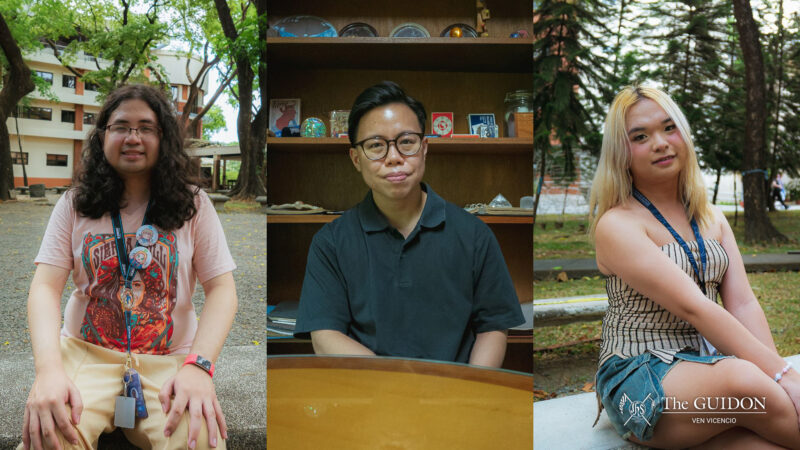It felt selfish to cancel class that Friday.
The night before, I came down with a serious case of food poisoning. I had a high fever, relentless nausea, an unshakable bout of coughing, and the inevitable headache that comes from all that. After throwing up for the fourth time that night, I found myself curled up on the bathroom floor, begging God for two things: to take away the pain, and for my students to forgive me.
Our students look up to us. There’s an unspoken expectation that we’re not only experienced, but also tough enough to endure most things. However, the truth is, sometimes, we are not.
We have deeply human moments—just like our students do. Beyond office hours, we live ordinary lives, all too often dressed in the trappings of extraordinary hardships: missed meals, hollow sleep, fatigue that settles in our eyes, and the quiet ache of trying to endure, among many others. It’s the kind of exhaustion no weekend can ever fix. We, teachers, experience anxiety and depression, too. We too—as Walt Whitman so generously put forward—contain multitudes.
A 2021 study by the Journal of American College Health reported that both faculty and students experience high rates of mental health challenges, with approximately one-third of the campus population citing severe symptoms of depression, anxiety, or stress. In 2024, the National Education Association (NEA) echoed these findings, noting that the rates of mental health issues were not only high—but strikingly similar—between students and faculty.
With most classes meeting only twice a week (thrice, sometimes, if you teach laboratory courses), it becomes relatively easy to forget that professors exist the other four to five days—but we do exist. We’re still here, showing up and carrying things not always visible to the casual observer.
That is why as I was then typing up an email to my beadles explaining that I would be absent due to illness yet again, I felt the guilt of it settle deep into my heart. I wrestled hard with it. I pumped myself with copious amounts of paracetamol, Excedrin, and Solmux, hoping to tame the symptoms. However, as misfortune would have it, my health took a turn for the worse. I simply could not get out of bed.
Yet, in spite of this storm of symptoms, the most overwhelming feeling I had wasn’t pain. It was guilt.
The NEA defines this concept of “teacher guilt” as the feeling of having done something wrong by taking sick days, leaving on time at the end of the workday or not grading student assessments at home. For many educators, the feeling of guilt stems from wanting to do all you can possibly do for your students while simultaneously feeling overwhelmed by the personal sacrifices being made and a lack of support.
Sometimes, this guilt pushes us beyond our own limits—I know it has for me.
Last semester was my first in higher education. Going into it, I was faced with the issue of not having a full semester’s worth of content ready. Thus, most mornings I was still awake at 5 AM, editing slides, reviewing readings, building assessments from scratch, and checking papers—not because I was unprepared, but because I wanted to give my students everything I had.
I knew that on many days, they were none the wiser. Once, I had broken down on my couch and had spent the night crying over an emotional situation that had simply overwhelmed me. Morning came and like clockwork, I pulled myself together and showed up to my 8 AM class as though nothing had happened just hours before.
We don’t often talk about these moments—about how teaching sometimes means holding a lecture steady while grief is pulsing beneath your voice, as well as how we wear professionalism like armor, even when we’re fraying at the edges.
How many times have your professors stood at the front of a classroom while silently carrying a diagnosis, a panic attack, or a heartbreak? How many times have your professors struggled through a depressive or anxious episode?
Can’t count the times? Neither could I—until I became a professor myself.
You see, professors are expected to always be available to their students. We’re expected to publish, prepare lectures, and create materials from scratch—all while teaching, grading, and staying composed. Beyond these expectations, many of us—especially those who lead with empathy—take on even more.
We carve out and hold so much space for our students. We talk them down from ledges, put out their fires, help them make decisions that will shape the course of their lives. We bear witness to their pain, their fears, and their aspirations. We celebrate their success and grieve for their failures.
However, this constant need to be hyper-productive, emotionally present, and academically engaged comes at a cost. It wears down even the most resilient among us. Despite this reality, we perform stability, carrying out our tasks as if nothing inside us is breaking. We pretend that we’re okay even when really, we’re not.
What I have discovered from my own experience is that sometimes, professors can depend on the kindness of their students too. There is beauty and magic in undivided waters. When we let students see our humanity, they often respond with more kindness and compassion than we ever give ourselves.
With this, maybe it’s time that we see that classrooms are not just spaces for knowledge, but for care. Behind every professor’s syllabus is a life—multifaceted, fragile, still unfolding. Maybe, showing up does not always entail being completely unbreakable. Sometimes, it can be enough to simply arrive—as our full, messy, human selves with all its vulnerabilities—in the hope that others might be willing to meet us there.
Michelle Melchor is a faculty member in the Ateneo de Manila University’s Biology Department, where she teaches Biostatistics. She also advocates for mental health awareness in academic spaces, drawing from her own experiences as an educator.




